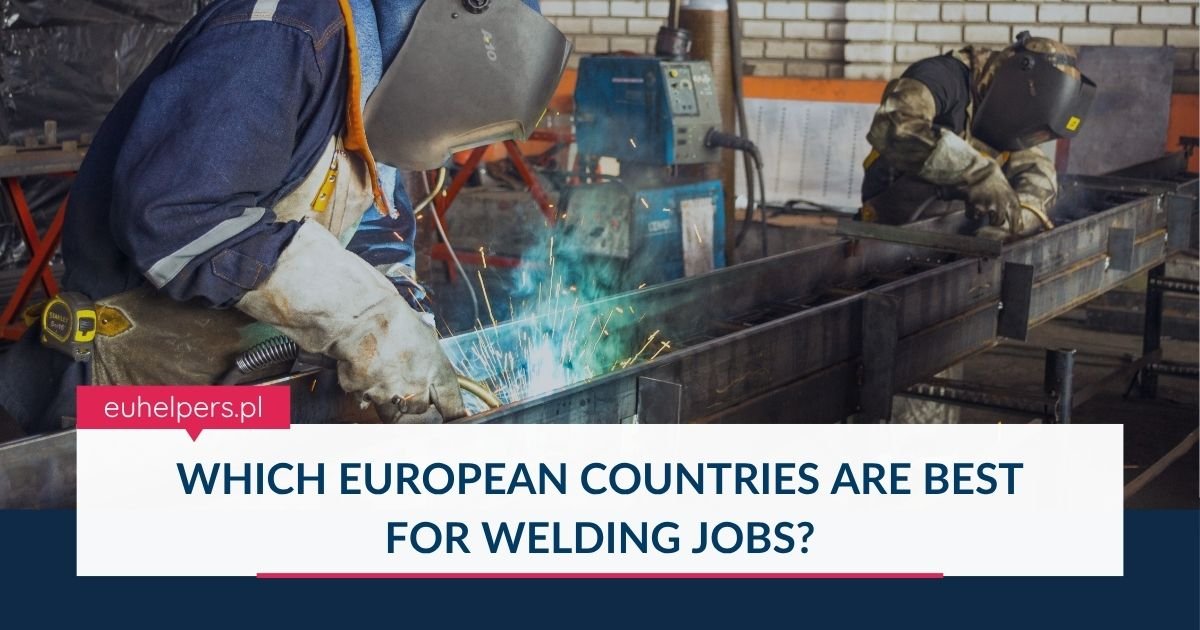Welding professionals continue to be in high demand across Europe, particularly in countries with strong industrial, construction, and energy sectors. Germany stands out as a top destination, but several other nations—including the Netherlands, Norway, Sweden, the UK, and even emerging Eastern European economies—also offer promising opportunities for skilled welders.
1. Germany: Europe's Welding Powerhouse
Germany remains the top choice for welders due to its expansive manufacturing industry, which includes automotive, aerospace, shipbuilding, and heavy machinery sectors.
-
Key Industries: Automotive, shipbuilding, aerospace, industrial manufacturing
-
Average Salary: €35,000–€50,000 per year
-
Why It Stands Out: Germany’s commitment to industrial excellence creates a constant demand for certified welders, especially those with experience in precision welding.
2. Netherlands: Multinational Opportunities
The Netherlands offers strong employment prospects for welders in sectors like construction, manufacturing, and energy, particularly in cities like Rotterdam and Eindhoven.
-
Key Industries: Construction, maritime, energy, manufacturing
-
Average Salary: €32,000–€45,000 per year
-
Why It Stands Out: Many multinational companies operate in the Netherlands, making it an ideal location for internationally minded professionals.
3. Norway: High Salaries in Energy and Infrastructure
Norway offers some of the highest salaries for welders in Europe, thanks to its thriving oil, gas, and renewable energy sectors.
-
Key Industries: Oil and gas, renewable energy, infrastructure
-
Average Salary: €45,000–€60,000 per year
-
Why It Stands Out: Welders with experience in offshore and industrial welding can find lucrative opportunities, particularly in energy projects.
4. Sweden: Innovation-Driven Manufacturing
Sweden’s advanced manufacturing sector, which emphasizes innovation and clean technology, offers increasing opportunities for skilled welders.
-
Key Industries: Automotive, green technology, manufacturing
-
Average Salary: €33,000–€48,000 per year
-
Why It Stands Out: Sweden’s focus on sustainability and technology translates into demand for specialized welding skills, especially in robotics and automation.
5. United Kingdom: Steady Demand in Construction and Industry
Despite recent policy shifts, the UK continues to have a solid demand for welders, especially in industrial hubs and infrastructure projects.
-
Key Industries: Construction, shipbuilding, heavy manufacturing
-
Average Salary: €30,000–€44,000 per year
-
Why It Stands Out: Large-scale construction and maintenance projects continue to fuel the demand for welding professionals.
6. Poland and Romania: Eastern Europe's Emerging Markets
Poland and Romania are rapidly developing their manufacturing bases, creating fresh opportunities for welders at various skill levels.
-
Key Industries: Automotive parts, industrial equipment, construction
-
Average Salary:
-
Poland: €18,000–€28,000 per year
-
Romania: €15,000–€25,000 per year
-
-
Why They Stand Out: Lower competition and growing investment in industrial sectors make these countries attractive for welders starting their international careers.
Choosing the Right Country: What to Consider
When deciding where to work as a welder in Europe, it’s important to weigh several factors:
-
Salary vs. Cost of Living: Higher wages in Norway or Germany may be balanced out by higher living expenses.
-
Visa and Work Permit Requirements: Some countries offer easier pathways for skilled workers, particularly those on shortage occupation lists.
-
Language and Integration: While English is widely used in the Netherlands and the Nordic countries, local language skills may be essential elsewhere.
-
Long-Term Opportunities: Consider the potential for career advancement, training, and permanent residency.
In summary, welders in Europe can find strong career opportunities in a variety of countries, each offering unique advantages depending on their experience, specialization, and personal goals. Germany and Norway lead in terms of salary and industrial strength, while countries like Poland and Romania offer entry points into growing markets with increasing demand.

